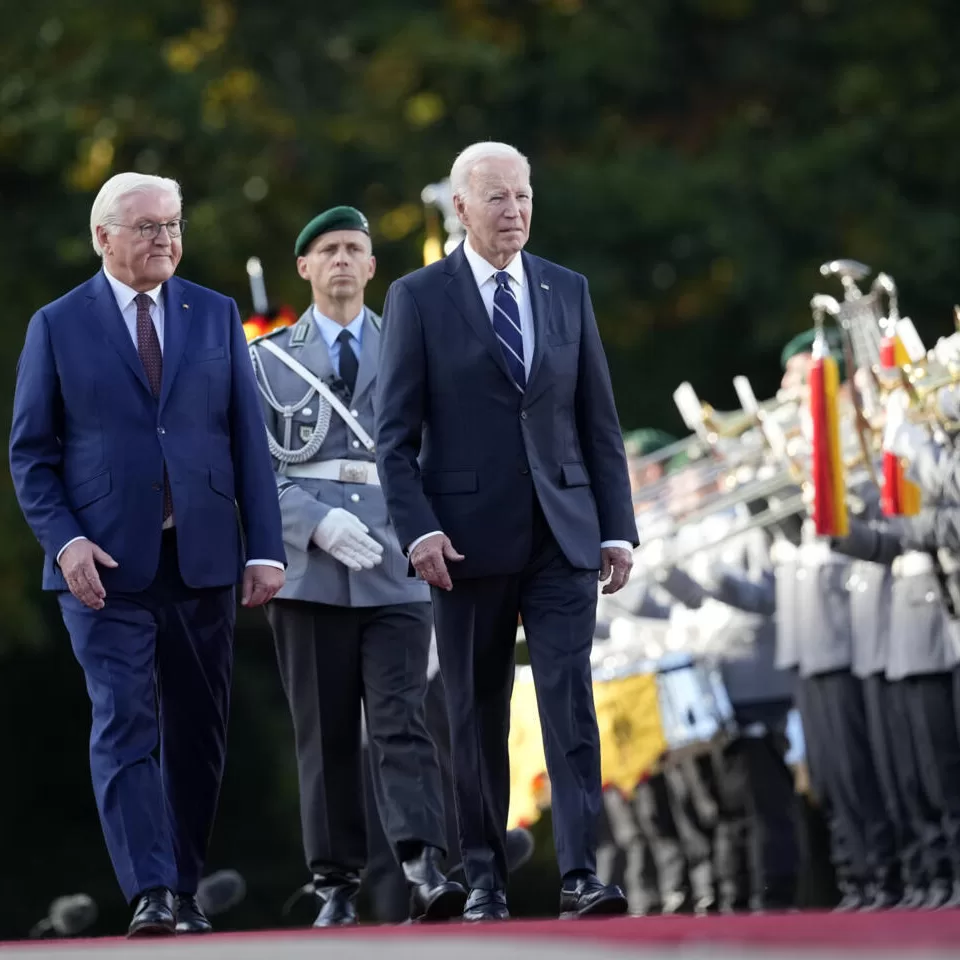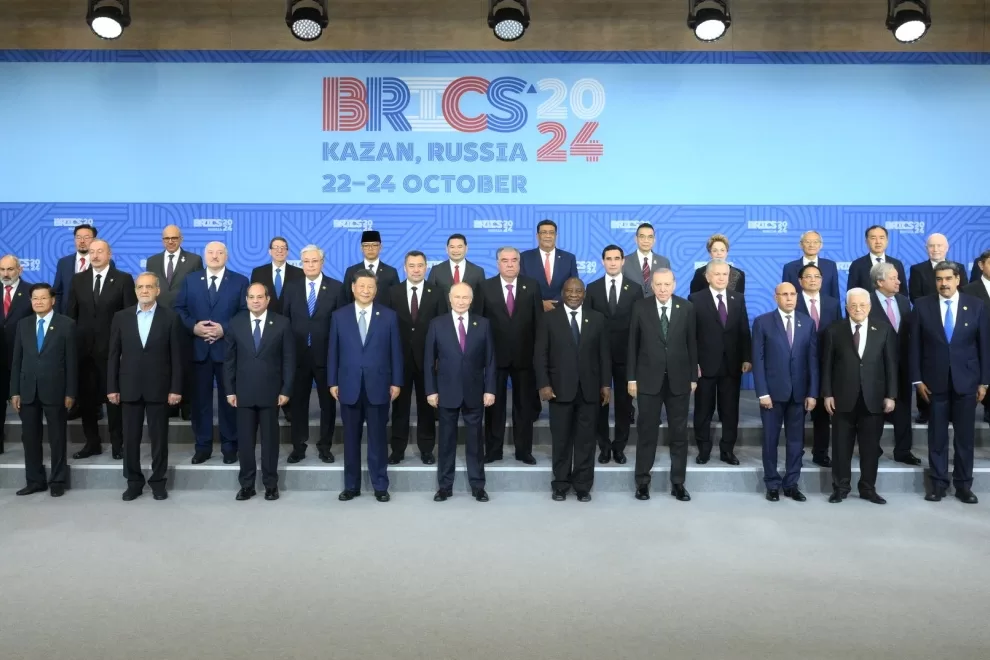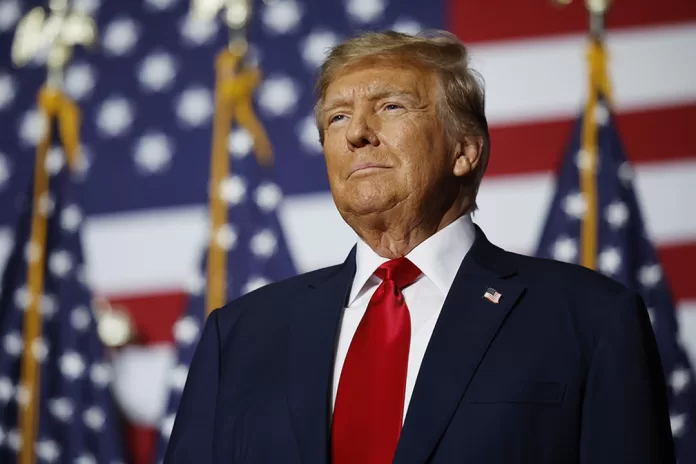Trump had criticized NATO even in his first term, and the prospect of him getting re-elected is making the European allies worried. Trump has consistently questioned NATO’s relevance, criticized member countries for not meeting defense spending commitments, and pushed for a more transactional approach to alliances.
This strategy could lead to several significant outcomes in terms of U.S. influence, its global standing, and its ability to manage rising geopolitical tensions, especially in the context of great power rivalry with China and Russia.
1. Erosion of U.S. Influence in Europe
Trump’s skeptical view of NATO could weaken transatlantic relations, leading to a reduced U.S. leadership role in Europe, think tanks such as Brooking Institutions and Council on Foreign Relations have written extensively on this. NATO is a cornerstone of American power projection in the region and beyond since the end of World War II. It has served not only as a military alliance but also as a vehicle for maintaining U.S. influence over European affairs.
Trump’s criticism of the alliance as “obsolete” or overly reliant on American funding creates uncertainty within NATO and potentially undermines the unity and strategic coherence of the organization. If Trump undermines NATO further, European countries may begin to pursue more independent security policies, potentially seeking alternative alliances or focus more on strengthening European Union defense capabilities. Such responses could diminish U.S. leverage in European geopolitical affairs, leading to greater fragmentation within the West and provide opportunities for Russia to exploit these divisions. Russia, already seeking to weaken NATO’s eastern flank would likely see this as a strategic opportunity to reassert its influence over former Soviet states and weaken Western deterrence. The erosion of U.S. influence in Europe would also undermine its ability to project power into regions like the Baltics, Eastern Europe, and even the Middle East and North Africa, where NATO missions have played a role in stabilizing conflict zones and countering terrorism.

2. Reduced Deterrence Against Russia
NATO serves as the primary bulwark against Russian aggression in Europe, particularly in Eastern Europe and the Baltics, where countries like Poland, Estonia, Latvia, and Lithuania depend on the alliance for security guarantees. Trump made a statement in February 2024, that if NATO countries do not raise their defense spending, he will allow Russia to ‘whatever the hell they want’. A farewell visit from President Biden to Europe did little to calm European anxiety regarding upcoming US Elections and what Trump might do if he is elected.
Trump’s reduction of focus on NATO could embolden Russia, as Moscow would see a weakened NATO as an opportunity to further destabilize Eastern Europe, whether through direct military action (as seen in Ukraine) or hybrid warfare tactics like cyberattacks, disinformation campaigns, and energy manipulation.
Russia has long viewed NATO expansion and U.S. military presence in Eastern Europe as a threat to its sphere of influence. If Trump were to further pull back from NATO or question the U.S. commitment to Article 5, the collective defense clause, it could undermine deterrence against Russian aggression. Eastern European countries, feeling less secure under the U.S. security umbrella, might either seek new alliances or pursue policies of appeasement towards Russia to safeguard their own security.
A weaker NATO would allow Russia to challenge U.S. influence more aggressively in Europe, possibly leading to increased Russian intervention in places like Ukraine, Georgia, and even the Balkans, where Russian-backed forces or political parties have significant influence.
3. Shift of U.S. Focus to Bilateral and Transactional Alliances
Under Trump, the U.S. could shift away from multilateral alliances like NATO and focus more on bilateral or ad-hoc agreements that are more transactional in nature. Trump has long favored a more “America First” approach, expecting allies to pay more for U.S. protection and to contribute more to shared defense goals. This approach could lead to a recalibration of U.S. alliances, with Washington seeking more cost-effective, flexible partnerships in regions it deems strategically important.

This shift would likely see the U.S. working more closely with countries like Poland, the U.K., or other European states that are willing to increase defense spending or pursue joint military projects on more favorable terms to the U.S. However, these adhoc alliances would lack the collective strength and unity that NATO provides, making U.S. power projection less consistent and reliable.
Moreover, Trump’s skepticism towards NATO could push European countries to seek greater autonomy, leading to the development of EU-led defense initiatives, which could dilute U.S. influence further. France has made a case for European defense force in the past as well.
While European nations might still value U.S. support, they may increasingly turn towards France or Germany for leadership within Europe, weakening U.S. dominance over transatlantic security matters.
France has been one of the uneasy members of the alliance that had initially left NATO in 1958 on quarrels related to its unequal status vis-a-vis the special relationship of the United States and the United Kingdom. Then president of France Charles De Gaulle sought to establish a tripartite commission which would put France on equal footing with United States and United Kingdom. It had also wanted to extend the geographic reach of NATO to include Algeria, where France needed NATO’s help in fighting an insurgency. Furthermore, France wanted maneuvering room to negotiate its own peace with communist Eastern European nations, independent of NATO-Warsaw rivalries. (Under Nicholas Sarkozy, France has returned as a member of NATO since April 2009.)
4. Impact on Power Projection in Asia and the Middle East
While Trump has largely focused his criticisms on NATO, any weakening of U.S. multilateral commitments could have ripple effects in other regions where American alliances are critical for power projection. In Asia, where the U.S. relies on a network of alliances to counter China’s growing influence, Trump’s de-emphasis on collective security arrangements could raise questions about the U.S. commitment to alliances like those with Japan, South Korea, Australia, and the Philippines.
China could exploit any perception that the U.S. is retreating from multilateral alliances to assert more control over the South China Sea, expand its Belt and Road Initiative, and influence other Asian nations to align with Beijing.
Similarly, in the Middle East, U.S. power projection has often relied on partnerships with countries like Saudi Arabia, Israel, and the Gulf states, but these relationships have also been supported by broader international coalitions. Trump’s focus on more transactional, bilateral deals, such as a possible NATO-style nuclear security pact with Saudi Arabia, could strain multilateral efforts to address issues like Iranian influence, terrorism, or stability in the region.
5. China and Russia Taking Advantage of a U.S. Retreat
China and Russia would likely see Trump’s de-emphasis on NATO and broader multilateral commitments as a strategic opportunity to fill the vacuum left by a less engaged U.S. In Europe, Russia would see a weakened NATO as a chance to reassert its influence over its Near Abroad. In Asia, China would push to expand its influence in the South China Sea, assert more control over Taiwan, and strengthen its economic and military ties with Southeast Asian countries that might question U.S. reliability.
Both powers could also collaborate more closely to undermine U.S. influence in key regions, as seen through China and Russia’s growing cooperation in military, energy, and diplomatic matters.

If the U.S. under Trump pulls back from its global commitments, China and Russia could further position themselves as alternative global powers, offering security and economic deals to countries wary of relying on a less predictable U.S. ally, such as through BRICS conference, being held in Kazan, China and Russia will demonstrate the alternative to Western model exists, also in the form of SCO.
6. Weakened U.S. Global Leadership and Soft Power
NATO is not just a military alliance but also a symbol of U.S. leadership in the post-World War II liberal order. A retreat from NATO and multilateralism could weaken U.S. soft power globally, as countries increasingly view the U.S. as an unreliable partner. This would reduce America’s ability to lead on global issues, whether in addressing climate change, global health crises, or humanitarian interventions. Weaker alliances would also mean that the U.S. has less diplomatic leverage in shaping the policies of its allies, making it harder to forge consensus on global challenges like counterterrorism, cybersecurity, and non-proliferation. Meanwhile, China’s influence through initiatives like the Belt and Road Initiative, and Russia’s use of hybrid warfare could rise, with both powers offering alternatives to a U.S.-led international order.




